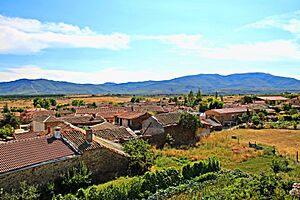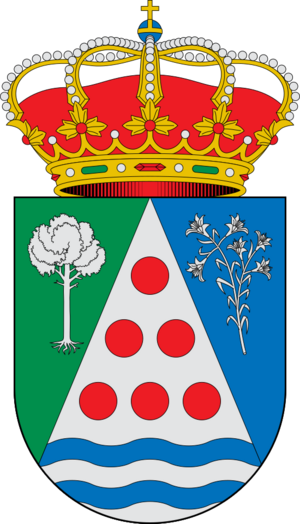Luyego facts for kids
Luyego is a small municipality located in the province of León, which is part of the Castile and León region in Spain. It is a quiet place known for its natural beauty and traditional way of life. In 2004, a count of the people living there, called a census, showed that 887 people called Luyego home. This count was done by the INE, which is Spain's national statistics office.
Contents
Luyego: A Spanish Municipality
Luyego is a municipality, which is like a local government area. It includes the main town of Luyego and several smaller villages around it. These villages work together under one local council. The people who live here enjoy a peaceful lifestyle.
Where is Luyego Located?
Luyego is found in the northwestern part of Spain. It is part of the province of León, which is known for its mountains and green landscapes. The area around Luyego is often called Maragatería. This region has its own special culture and traditions. Luyego is surrounded by beautiful natural areas. These include forests and hills, perfect for exploring.
A Glimpse into Luyego's History
The history of Luyego is connected to the wider Maragatería region. This area has been home to people for a very long time. The Maragatos, as the people from this region are called, were traditionally known for their work as traders and transporters. They traveled across Spain with their goods. This history has shaped the unique culture of Luyego. Old buildings and traditions still tell stories of the past.
Life and Culture in Luyego
Life in Luyego is often calm and connected to nature. Many people work in farming or other local jobs. The community values its traditions. Festivals and local celebrations are important events. They bring people together to share food, music, and dances. These traditions help keep the unique spirit of Luyego alive. The local food is also a big part of the culture. It often uses fresh ingredients from the land.
The People of Luyego
The population of Luyego is relatively small. The 2004 census showed 887 residents. A census is a count of all the people living in an area. It helps the government understand how many people live where. It also helps them plan for schools, hospitals, and other services. Even though the population is small, the community is close-knit. Everyone knows each other, and there is a strong sense of belonging.
See also
In Spanish: Luyego para niños
 | Misty Copeland |
 | Raven Wilkinson |
 | Debra Austin |
 | Aesha Ash |




